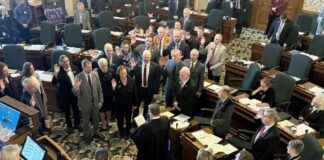Eli Lilly CEO Finds Common Ground with Trump Administration
In a surprising turn of events, Eli Lilly CEO Dave Ricks expressed optimism about potential collaborations with the incoming Trump administration during a recent interview in San Francisco. Ricks highlighted the possibility of a “significant common cause” with the new administration on key issues, particularly regarding obesity.
Uncertainty Surrounding Medicare Proposal
One of the most pressing topics discussed during the interview was the future of a recent proposal by the Biden administration for Medicare to cover weight loss drugs. When asked about the likelihood of the Trump administration finalizing this proposal, Ricks acknowledged the uncertainty but remained hopeful. He noted that ongoing discussions with the administration have been encouraging for various reasons.
Criticism from Trump’s Pick for Health and Human Services
Despite the positive outlook from Ricks, concerns have been raised by Robert F. Kennedy Jr., the President-elect’s choice to lead the Department of Health and Human Services. Kennedy has criticized the proliferation of weight loss drugs manufactured by companies like Lilly and advocated for lifestyle interventions as a primary approach to addressing obesity.
Expert Perspectives and Industry Insights
As the dialogue between Eli Lilly and the Trump administration continues to evolve, it is essential to consider the broader implications of these discussions. Experts in the field of healthcare and pharmaceuticals emphasize the significance of aligning policy decisions with public health priorities. The intersection of business interests and public health goals presents a complex challenge that requires thoughtful consideration and collaboration.
Throughout these discussions, the importance of balancing innovation with safety and efficacy remains paramount. As the healthcare landscape undergoes significant transformations, stakeholders must navigate the delicate balance between advancing medical innovation and safeguarding patient well-being.
At the heart of these conversations lies a fundamental question: How can industry leaders, policymakers, and healthcare professionals work together to address pressing health challenges while upholding the highest standards of patient care? The intersection of business, politics, and public health underscores the need for constructive dialogue and collaboration to achieve meaningful progress in the healthcare sector.
As we navigate the complexities of healthcare policy and innovation, it is crucial to prioritize the well-being of patients and communities. By fostering open communication, embracing diverse perspectives, and promoting transparency, we can collectively strive towards a healthier, more equitable future for all.

















